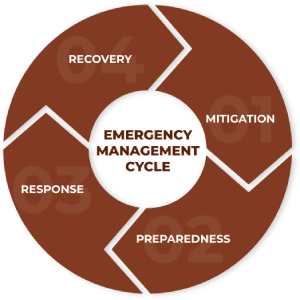Community Development

Consultation
Consultation for First Nations is a vital process that ensures Indigenous communities are meaningfully involved in decisions that affect their rights, lands, and resources. It involves engaging with community members to gather their perspectives, respect their traditional knowledge, and address their concerns. Effective consultation helps build trust, promotes collaboration, and fosters mutual understanding between First Nations and external stakeholders, such as government entities and private companies. By prioritizing transparent communication and cultural sensitivity, consultation processes can empower First Nations to assert their rights and contribute to sustainable development initiatives that align with their values and aspirations.

Economic Development Plans
Economic development for First Nations focuses on empowering Indigenous communities to create sustainable economic opportunities that align with their cultural values and goals. This includes fostering entrepreneurship, supporting local businesses, and leveraging natural resources responsibly. By developing infrastructure, enhancing workforce skills, and accessing funding and partnerships, First Nations can build resilient economies that promote self-sufficiency and improve the quality of life for community members. Moreover, integrating traditional knowledge and practices into economic initiatives ensures that development is not only financially viable but also culturally relevant and environmentally sustainable.

Emergency Management
Emergency management for First Nations involves developing tailored strategies to prepare for, respond to, and recover from crises such as natural disasters, health emergencies, and other significant threats. This process emphasizes community resilience and incorporates traditional knowledge alongside modern emergency practices. Engaging community members in planning and training ensures that responses are culturally appropriate and effective. By fostering strong partnerships with government agencies and organizations, First Nations can enhance their capacity to manage emergencies, protect their communities, and ensure a swift recovery while preserving their cultural integrity and values.
Economic Development Initiatives
- Small Business Incubators: Provide resources, mentoring, and funding to help startups and local businesses grow.
- Agri-business Support: Access grants or incentives to support local agriculture, including value-added products like processed foods or agricultural technology.
- Comprehensive Economic Plans: Develop strategies for sustainable economic growth, balancing short-term opportunities with the long-term vision of the community.
- Farm-to-Table Initiatives: Encourage local food production and consumption by connecting farmers with restaurants and markets.
Education and Training Programs
- Entrepreneurship: Workshops or mentoring programs that help community members start their own businesses, develop business plans, and access funding.
- Youth Programs: Skills-based workshops, leadership training, and mentorship initiatives that engage youth in positive activities and prepare them for future employment.
- Fundraising and Grant Writing: Training on how to secure funding through grants, fundraising, and partnerships with non-governmental organizations.
- Treaty Rights and Land Claims: Training and education around legal rights, treaties, land claims, and sovereignty, including advocacy and negotiation skills.
Infrastructure Development
- Renewable Energy Projects: Invest in wind, solar, or other green energy projects to reduce reliance on fossil fuels and create new industries.
- Public-Private Partnerships (PPP): Leverage partnerships between governments and private enterprises to fund and implement large-scale projects.
- Housing Initiatives: Create policies and programs that support the construction or renovation of affordable housing to attract and retain community members.
- Utilities Upgrades: Ensure reliable access to water, energy, and waste management systems, which can support industrial growth and improve quality of life.
Tourism and Cultural Development
- Tourism Promotion: Develop marketing strategies, events, and infrastructure that draw visitors to the community.
- Cultural Events & Festivals: Organize arts, music, food festivals, and other events that showcase local culture and attract both visitors and residents.
- Sustainable Tourism: Encourage eco-tourism and other environmentally responsible tourism that benefits the local economy while preserving natural resources.
- Cultural and Historical Preservation: Preserve the community’s heritage, which can attract tourists and create a sense of identity.
